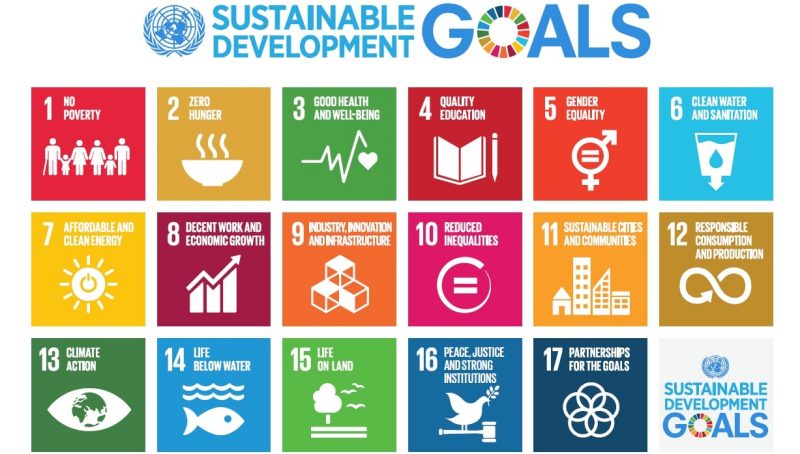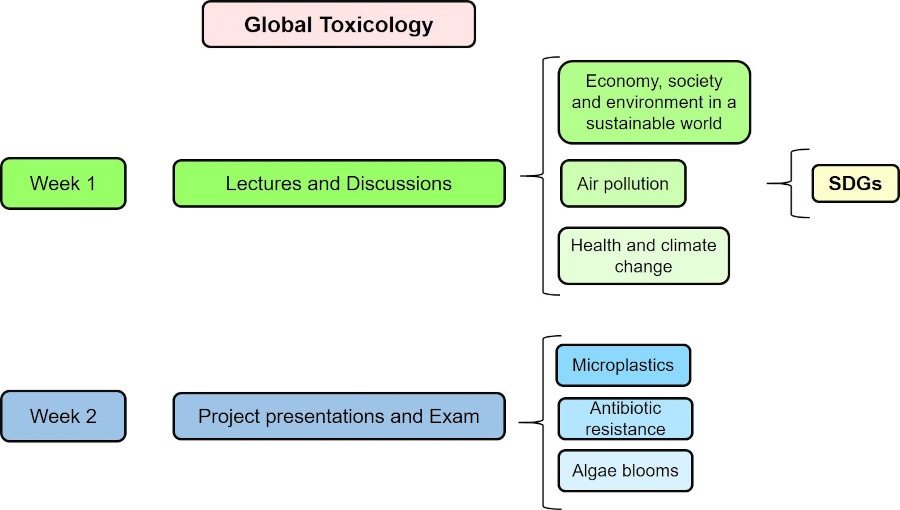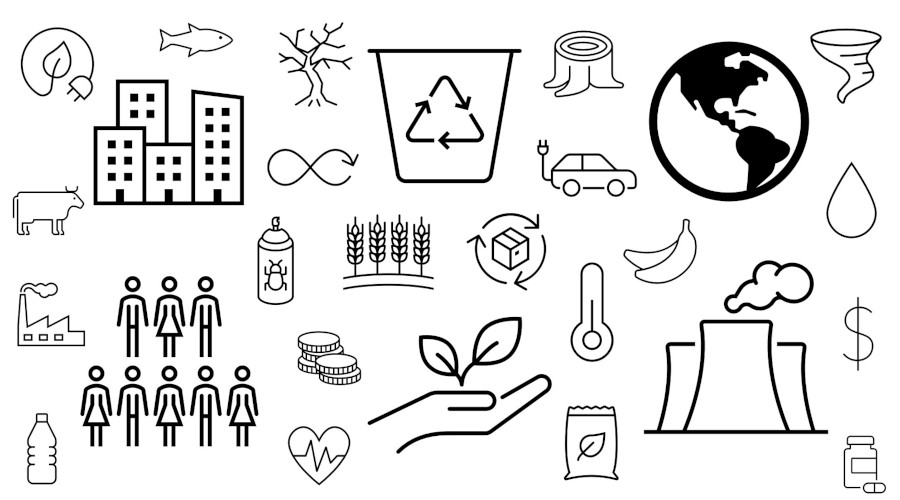
A series on sustainability at KI: Global Toxicology (course review) (1/3)
Hello everyone and welcome back to my blog! This time I will make a review on the very first course of my second year as Tox student: Global Toxicology. During this blog I will, as usual, discuss on how the course is structured, what topics are involved, how is the course evaluated and what is the impact that this short course has on our current world. Finally, I want to say that this is only one of a 3-blog series that I will be writing on sustainability at KI during the next weeks.
Course structure
Global Toxicology is the very first course after summer break but also the shortest of the whole Toxicology programme. Indeed, this course lasts only 2 weeks and comprehends 2.5 credits! In my opinion, Global Toxicology is probably one of the most important and most interesting courses of all because it places the Toxicology field in line with some of the sustainable development goals (SDGs), raises awareness on the world´s current situation and on how we, as individuals, can contribute to find solutions. Besides, I think this course is highly intriguing because the contents and learning aims are very, very different from the rest of the courses. The social, political and environmental factors put altogether in a toxicological context, makes us realize the importance of carrying out our profession in a sustainable way but also to promote sustainability. Finally, the course’s structure is based on lectures, video-lectures, reflection assignments, oral presentations and a lot of discussion derived from all the aforementioned activities.

Topics
Despite being the shortest course of all, Global Toxicology encompasses a wide range of topics which are all related one to each other and to Toxicology. During these 2 weeks, some of the concepts and terms that you will hear all the time will be: Sustainable development, SDGs, climate change, pollution, economic growth, health, environment and society. Now that we are in context, some of the topics for lectures and discussions involve introduction to the SDGs with special focus on those ones concerning Toxicology, economic growth and life expectancy, planetary boundaries, chemical safety and chemical control, pesticide-use as a global health concern, health effects of climate change and air pollution and transformations and solutions. In addition, to enrich our learning we have the task of analysing and then writing a reflection on how a country (of your choice) is doing regarding the SDGs. Also, we choose a topic, for instance, antibiotics resistance, microplastics, algae blooms, textiles, cobalt, etc. to give an oral presentation and lead a very interesting discussion.

Evaluation
The evaluation of this course is very simple because it only encompasses a final written exam in which you can get the typical pass, pass with distinction or fail. Fortunately, we were able to take the exam in person instead of home exam, which in my opinion would have been much harder and stressful. The exam is about discussing and analysing open questions regarding a topic and its relevance for the SDGs. At the end, if you have attended all lectures, have been participative in the discussions, have performed all the assignments and studied, the exam will flow very smoothly for you.
Relevance for our current world
As I have already mentioned, I think this course is very relevant for us prospect toxicologists to carry out our work in a sustainable way but also to promote awareness among other people. As an interesting fact, in Sweden integration of sustainability teaching is mandatory at all educational levels. This is because the country is very focused on developing sustainably and to achieve it, is necessary to encourage children and youth to build a sustainable society thru education.

For us Tox students, this course was very important to become aware (or even more aware) on the global crisis that seems to be getting worse. During some of the discussions we had, we arrived at the conclusions that as individuals we can contribute to the world as far as possible by recycling, consuming responsibly and using cleaner transportations for instance. However, we also concluded that to generate a significant change in our world, governments and private sector must take the biggest part on adjusting for sustainable development. This is because they have the power to for example, reduce CO2 emissions, reduce the amount of plastic production and use specially for food packaging and invest on cleaner energies. To sum everything up, awareness and education play a key role on how society contributes and demands for a better world and how world’s governments and industry mitigate the impact of human activity in the environment.

I hope you enjoyed this blog and if you want to know more about sustainability at KI or more on this course, don´t hesitate and contact me!
Stay tuned for my next blogs on Sustainability at KI!
Aline Colonnello Montero
gloria.aline.colonnello.montero@stud.ki.se
Aline Colonnello - Toxicology
My name is Aline Colonnello Montero, I am twenty five years old and I come from the wonderful but busy Mexico City. I consider myself to be a perseverant person who works hard to meet all my goals and ambitions. I have a bachelor’s degree in Biology and I currently study the Master’s programme in Toxicology at Karolinska Institutet. My job as part of the digital ambassadors’ team consists on writing blogs

1 comments